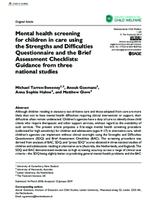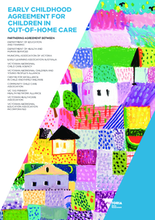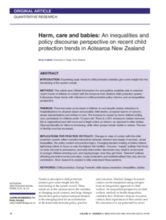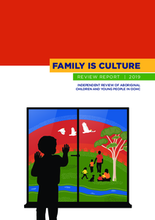

Displaying 321 - 330 of 674
This systematic literature review examines how the construct of cumulative harm is understood and operationalized within current Australian child protection legislation, policy, and practice and situates this within an international context.
Indigenous children have a long history of overrepresentation in child protection systems. This exploratory, mixed methods study examined practitioner perceptions of risk in response to client ethnic group.
The present article proposes a first-stage mental health screening procedure (calibrated for high sensitivity) for children and adolescents (ages 4–17) in alternative care, which children’s agencies can implement without clinical oversight using the Strengths and Difficulties Questionnaire (SDQ) and Brief Assessment Checklists (BAC).
The present article proposes a first-stage mental health screening procedure (calibrated for high sensitivity) for children and adolescents (ages 4–17) in alternative care, which children’s agencies can implement without clinical oversight using the Strengths and Difficulties Questionnaire (SDQ) and Brief Assessment Checklists (BAC).
The primary aim of a recent qualitative study was to optimise grandparent-grandchild connectedness after child safety concerns.
In Australia, the emerging model of child welfare policy and practice emphasises 'permanency and lifelong connections with birth families'.
The Early Childhood Agreement for Children in Out-of-Home Care (OOHC) was first developed in 2014 as a shared commitment by the Victorian Department of Education and Training (DET), the Department of Health and Human Services (DHHS), the Municipal Association of Victoria (MAV) and Early Learning Association Australia (ELAA) to support young children in OOHC in Victoria, Australia to access key early childhood services.
This article uses Official Information Act and publicly available data to examine recent trends of children in contact with the Aotearoa New Zealand child protection system. It discusses these trends with reference to child protection policy reforms, and an inequalities perspective.
This article by Kathryn E. van Doore and Rebecca Nhep, published in the Griffith Journal of Law & Human Dignity, describes how orphanage trafficking occurs as a process of child trafficking.
This Review is aimed at examining the high rates of Aboriginal children and young people in out-of-home care (OOHC) in New South Wales (NSW), Australia and the implementation of the Aboriginal Child Placement Principle (ACPP) in this jurisdiction.






